This professor exposed Columbia University’s false ranking. He says it’s only the tip of the scandal
Math professor Michael Thaddeus accused Columbia of using false data to rise up the college rankings. He tells Rachel Sharp why the real lesson from the scandal is that the ranking system must be scrapped

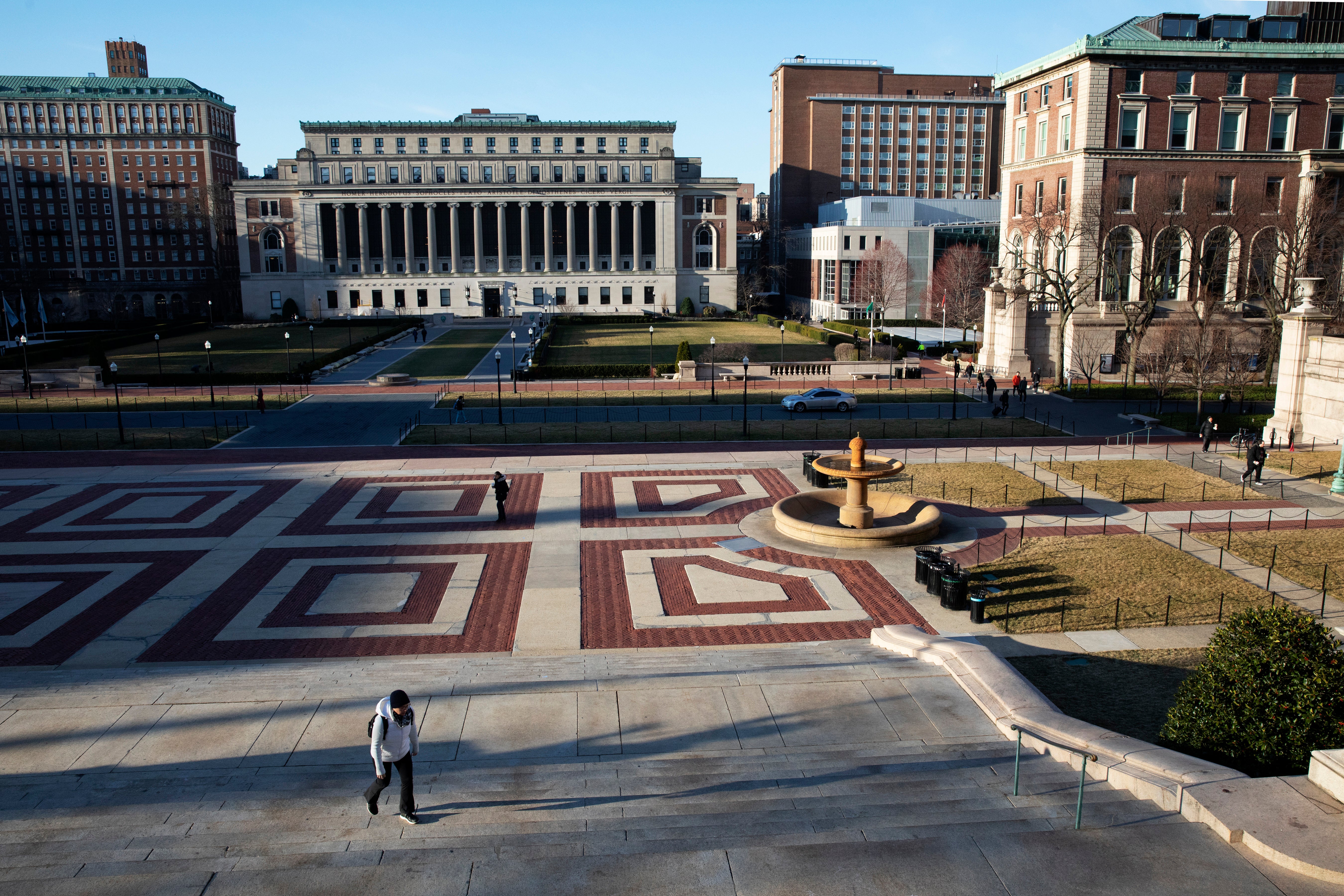
Your support helps us to tell the story
From reproductive rights to climate change to Big Tech, The Independent is on the ground when the story is developing. Whether it's investigating the financials of Elon Musk's pro-Trump PAC or producing our latest documentary, 'The A Word', which shines a light on the American women fighting for reproductive rights, we know how important it is to parse out the facts from the messaging.
At such a critical moment in US history, we need reporters on the ground. Your donation allows us to keep sending journalists to speak to both sides of the story.
The Independent is trusted by Americans across the entire political spectrum. And unlike many other quality news outlets, we choose not to lock Americans out of our reporting and analysis with paywalls. We believe quality journalism should be available to everyone, paid for by those who can afford it.
Your support makes all the difference.For the class of 2022, it was the most competitive year on record to secure a place at Columbia University.
More than 40,000 prospective students applied to join the Ivy League school, desperate to bag a coveted spot at the so-called second best university in America. Fewer than six per cent were successful.
But, just six days after those excited freshmans entered lecture halls for the first time at the start of the academic year, they discovered that Columbia’s prestige may not necessarily meet the hype.
On 12 September, US News released the latest version of its university rankings, sending Columbia plummeting an embarrassing 16 places in a single year.
Now, the professor whose exposure of false data catalysed the college’s catastrophic fall says it’s only the start of the scandal.
“This is not a single university issue,” Michael Thaddeus, a Columbia math professor, tells The Independent.
“It’s widespread. I have no doubt that false data is submitted all the time.
“It’s two-fold: there are lots of universities doing this but Columbia’s conduct was particularly extreme and egregious.”
For Mr Thaddeus, Columbia’s scandal reveals how universities are submitting false data to ranking companies to make themselves more appealing to potential students.
It also exposes how “worthless” university rankings are, how little bearing they actually have on the quality of teaching and why the ranking systems should be scrapped altogether.
And, more broadly, it shines a light on the way that “powerful” university administrations are able to operate in “secret” and offer little transparency to the students now forking out an average of $40,000 a year for tuition. Columbia lists its average annual cost of attendance at nearly $86,000.
Fight for transparency
Mr Thaddeus’ crusade to draw attention to these issues began long before he noticed some doubtful figures in Columbia’s ranking data.
The math professor says he has been pushing for transparency in other aspects of Columbia’s administration for several years.
After teaching at the university for more than two decades, he says he became “radicalised” by the lack of transparency from the administration.
“I’ve been gradually radicalised by serving as department chair between 2017 and 2020 as I realised how secretive my administration is, how authoritarian it is,” he says.
“The administration seldom shares important information with the faculty, with students or with the public and I became committed to the cause of trying to bring that to the light of day.
“For example, my university is extremely secretive about budget. It’s hard to tell where they’re spending money and what on. I’ve struggled with the university for years trying to change that and I’m committed to the cause of transparency at the university and fighting the administration over it.”
It was against this backdrop that Mr Thaddeus says he first grew suspicious of Columbia’s meteoric rise to the top of the prolific college ranking system.
Back in 1988, Columbia was ranked number 18 in US News & World Report’s Best Colleges list – an annual list which has been used as a benchmark for prospective students since 1983.
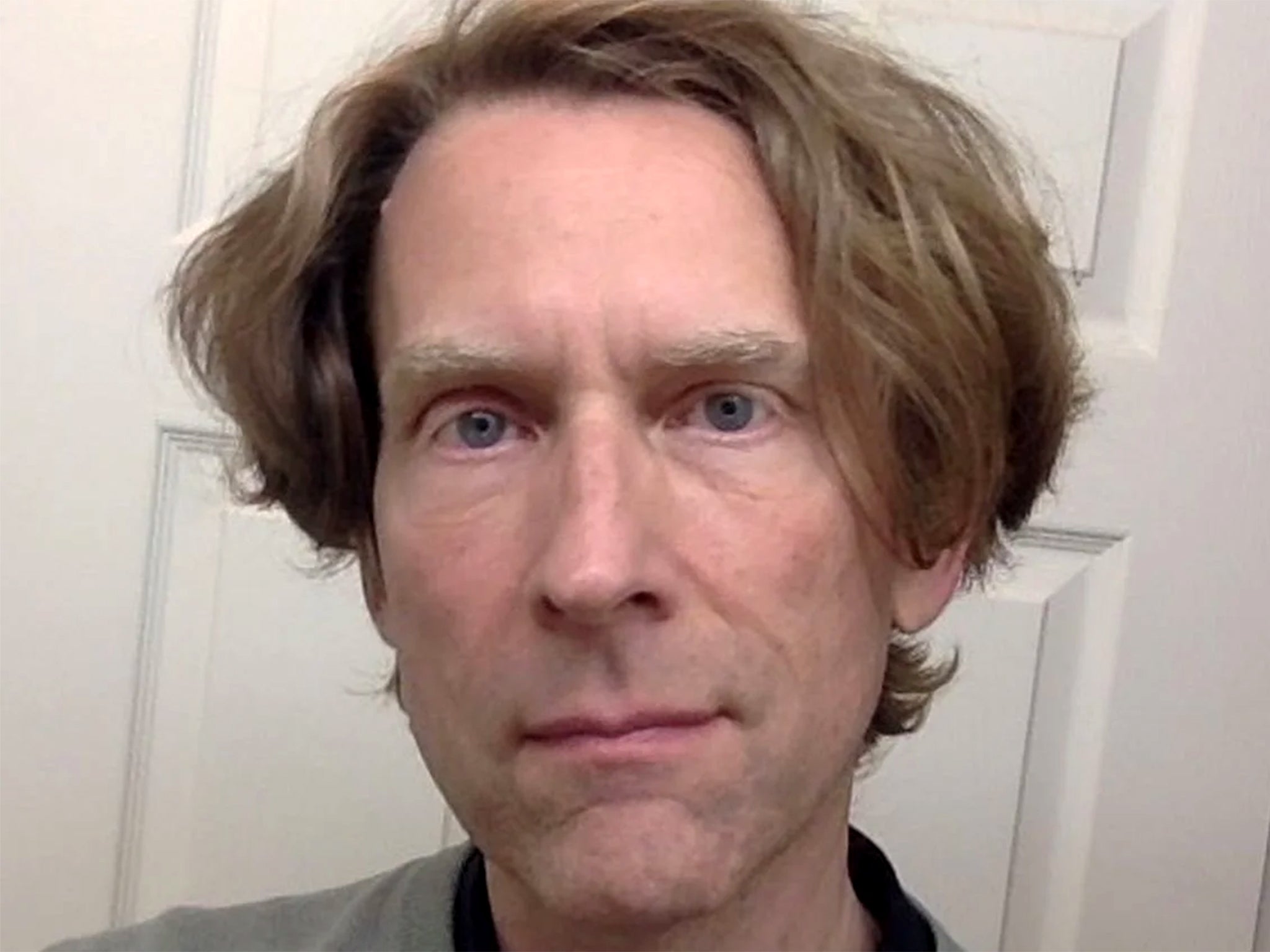
In a single year, it leapfrogged 10 spaces to number eight.
By 2011, it was in the top five.
And, in 2021, it reached number two, second only to Princeton.
Digging into the data
“Why have Columbia’s fortunes improved so dramatically?” Mr Thaddeus questioned in his analysis of the data.
The US News ranking is calculated using data on arious aspects of the university including class size, graduation rates and financial resources per student.
Mr Thaddeus explains that the data is submitted by the university itself – and is not subject to rigorous review.
Anecdotally, he said, the data submitted to secure Columbia’s 2021 ranking just didn’t add up.
For example, Columbia had reported that 82.5 per cent of its undergraduate classes had less than 20 students.
“I knew that couldn’t be accurate as it didn’t match my experience or the experience of other members of faculty,” he says.
He began to delve into the data.
Using publicly-available information, the professor uncovered what he describes as “huge discrepancies” between the data the university released as a public entity and the data it handed to US News to determine its ranking among the nation’s top colleges.
His analysis found the proportion of classes with fewer than 20 students actually stood at around 60 per cent. Columbia has since admitted it to be 57.1 per cent – a more than 25 percentage point difference from the data it gave to US News.
In a damning 21-page analysis posted online in February, Mr Thaddeus exposed the disparities and accused his own university of submitting “inaccurate, dubious or highly misleading” data to US News, causing it to dramatically rise up the rankings.
In the immediate aftermath, Columbia took a defiant stance and stood by its data.
But, several months on, the administration is now adopting a somewhat different tone.
In June, the university said it wouldn’t submit data to US News for this year’s rankings.
On 9 September – three days after the first day of classes – it admitted that its internal review found it had used “outdated and/or incorrect methodologies”.
Three days later, US News downgraded the university from number two to number 18 in its ranking – a position it last held more than three decades ago in 1988.
A question of intention
Mr Thaddeus stops short of accusing Columbia of intentionally submitting the false data – saying that the university will have to answer to that.
Yet, some of the differences in the data are so great that “you can’t credibly attribute that to mere methodology,” he says.
He also points to the vagueness of Columbia’s September statement which made no attempt to claim that the errors were accidental.
“We deeply regret the deficiencies in our prior reporting and are committed to doing better,” it read.
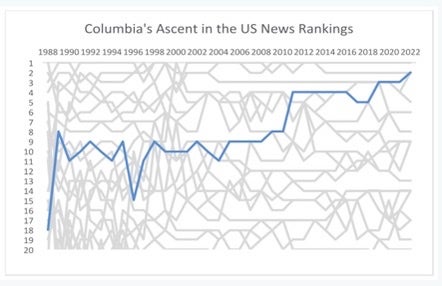
“The public announcement was striking in what it doesn’t say,” says Mr Thaddeus.
“It says they gave false information but doesn’t say if they knew it was false. It doesn’t deny it or say it was unintentional or inadvertent.”
Mr Thaddeus says the fact that the university carried out its own internal investigation – rather than ordering an independent probe – “looks like a whitewash and an attempt to avoid responsibility for the issue”.
“If you were the official signing off on false data did you know at the time that data was false? Was it just last year’s data that was inaccurate or several years?” he asks.
“These questions need to be asked. The question of intention is what’s important.”
The Independent put the question of whether or not the inaccurate data was submitted intentionally to Columbia but did not receive a response by the time of publication.
Mr Thaddeus has equally harsh words for US News over the saga.
“There should be just as much criticism of US News and ranking organisations in general as of universities that submit false data,” he says.
“As the reason universities submit false data is they know they can get away with it as the vetting process is very cursory and shoddy.”
He adds: “If a university rises to number two and claims its data is much higher than other schools then the figures should be looked into in some way but it appears no explanation was demanded of Columbia until I raised the questions.
“The fact that this is a system that allows false information to slip through is a serious indictment of its methods.”
US News responded to the criticism saying that it uses academic data and reliable sources to compile its rankings and that it is open to suggestions to improve the system.
“US News analyzes academic data from surveys and reliable third-party sources and requires a high-level academic official to attest to any data submitted by institutions directly,” it said in a statement to The Independent.
“The Best Colleges methodology is continuously refined based on user feedback, discussions with schools and higher education experts, literature reviews, trends in its own data, availability of new data, and engaging with deans and institutional researchers at higher education conferences. As always, we continuously welcome feedback that helps us to improve our rankings.”
Scrapping rankings
While it may be unclear whether or not the false data was intentional, Mr Thaddeus says what is clear is what it reveals: how “worthless” college rankings truly are.
“What’s got people’s attention is the big change in the rankings for Columbia. And people want to know which is more accurate – the two or the 18,” he says.
“The message I’m trying to get out is that the rankings are meaningless so neither one is accurate.
“Rankings are worthless and we should pay no attention to them. They are totally fictional. The figures have no impact on the work that goes into a university – there is nothing in the data used in the system that directly assesses the quality of the education.”
The very idea that an institution can fall down the ranking so far in a single year also discredits the entire ranking system, he says.
The quality of education has not changed from 2021, when Columbia was number two, to 2022 when Columbia was 18, he points out, adding that the “obsession with rankings is really weird”.
When asked to respond to criticism that college rankings are “worthless” and don’t accurately reflect education quality, executive chairman and CEO of US News Eric Gertler told The Independent in a statement that selecting the right college is one of “the most consequential investment[s]” a student makes.
“US News & World Report strives to be – as it has been since 1983 – the preeminent, objective resource to help high school students and their families make the most well-informed decisions about college and ensure that the institutions themselves are held accountable for the education and experience they provide to their students,” he said.
As far as Mr Thaddeus is concerned, the issue is far bigger than both Columbia and US News.
The way he sees it, many other universities must also be submitting false data, with the scandal exposing a wider system where colleges are clamouring for the top spots in rankings and – in doing so – are putting profits ahead of students’ education.
But, even more broadly, he feels the scandal exposes the lack of vetting in college ranking systems and how they do not give a true reflection of the quality of the given college.
College rankings should be scrapped altogether, he says.
“There’s so many flaws in the rankings. I’m not trying to reform the rankings I’m saying that it should be swept away entirely as it’s worthless,” he says.
Scandal-hit industry
The Columbia ranking scandal marks just the latest scandal to rock the world of higher education in recent years.
In 2019, the college admissions scandal – also known as Varsity Blues – made headlines across America as wealthy parents were found to have paid to get their children into top universities.
Among those busted was Full House actor Lori Loughlin who admitted to paying $500,000 to get her two daughters into the University of Southern California under the ruse that they were rowing recruits.
The ranking scandal gives yet another look into the state of the overall college system, where “money, power and influence” reign.
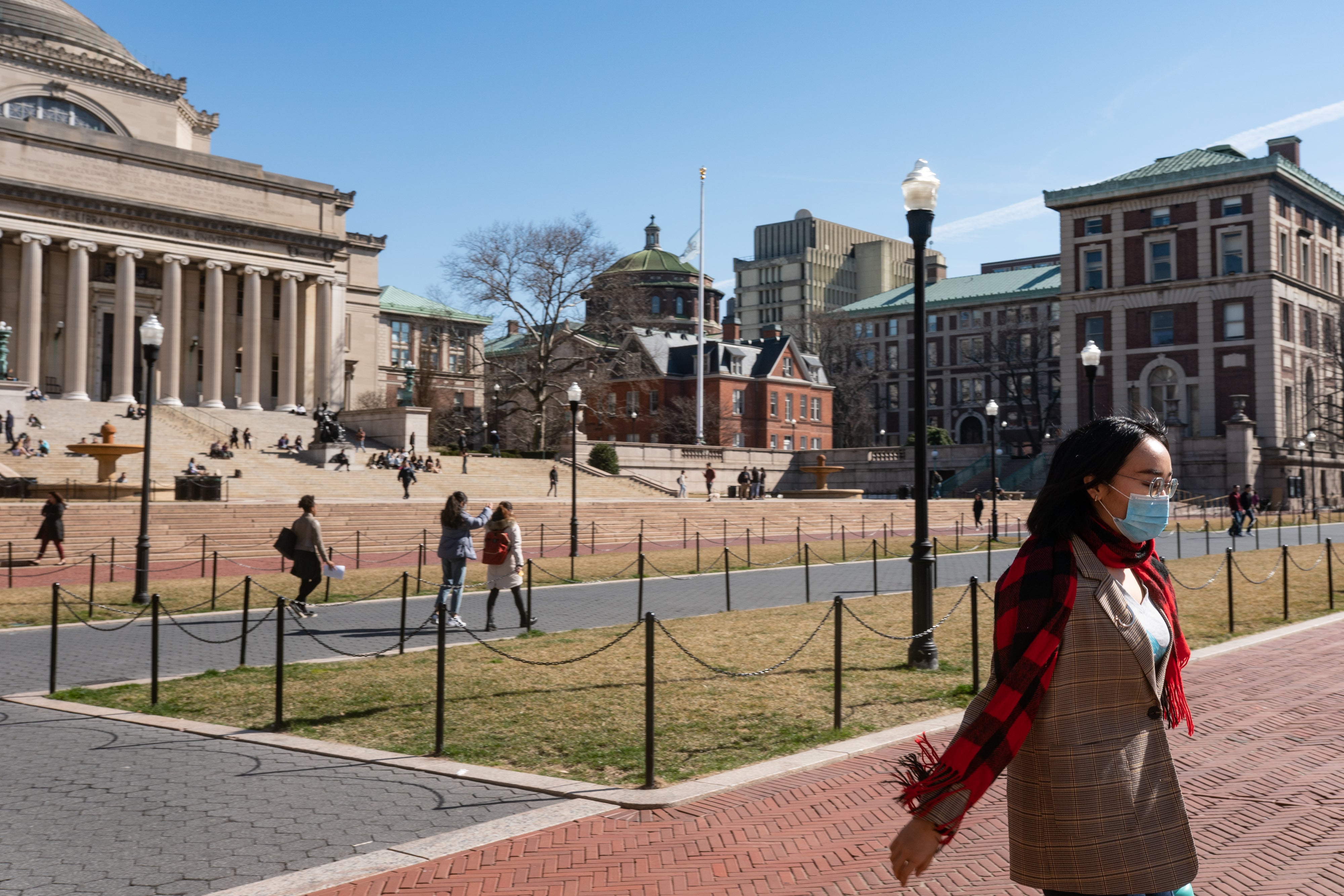
“The administrations at many universities around the world have grown dramatically and more powerful and autocratic and less transparent and more opaque. They’re tightlipped on budgets and how they raise and spend money and that is going to lead to corruption,” he says.
“What universities need is much more transparency and oversight by the faculties and faculties need to step up and take an interest in these things.
“Faculty was cut out of the process 20 years ago. If there was more oversight then there would be be less corruption.
“We’re living in a post-truth era where actors think it’s acceptable not to tell the truth and to get away with presenting falsehoods with impunity – and I’m sad to say that universities are included in that.”
It’s not lost on Mr Thaddeus that it comes as a shock to people when they learn that the scandal he exposed was not for a rival university – but for the university he has worked at for 24 years.
“I understand its unusual for faculty to question their own institution and attack claims made by their own institution,” he concedes.
Despite this, he insists he hasn’t faced any backlash.
“From the public, students and alumni, the reaction has been almost universally positive with enormous encouragement and support. I thought they’d see me as a traitor but the reaction from the community has been 95 per cent supportive,” he says.
And the reaction from Columbia’s administration?
“Complete silence,” he says.
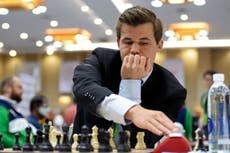


Join our commenting forum
Join thought-provoking conversations, follow other Independent readers and see their replies
Comments